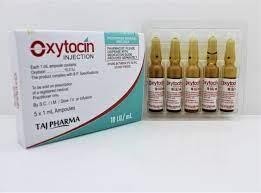A nurse is preparing to collect a specimen for newborn screening. Which of the following actions should the nurse take?
Use a lancet to puncture the inner aspect of the newborn's heel.
Leave the newborn's heel open to the air after the puncture.
Apply an antiseptic to the newborn's heel after collecting the specimen.
Warm the newborn's heel for 5 to 10 min before the puncture.
The Correct Answer is A
A) Correct - Newborn screening typically involves a heel stick using a lancet to collect a few drops of blood from the inner aspect of the newborn's heel.
B) Incorrect- Leaving the newborn's heel open to the air after the puncture is not necessary; a small bandage is typically applied.
C) Incorrect- An antiseptic is not typically applied after collecting the specimen, as it could interfere with the accuracy of the screening tests.
D) Incorrect- Warming the newborn's heel is not a standard step before collecting a specimen for newborn screening.
Nursing Test Bank
Naxlex Comprehensive Predictor Exams
Related Questions
Correct Answer is B
Explanation
A) Incorrect- Kegel exercises are helpful for strengthening pelvic floor muscles but may not directly alleviate afterpains.
B) Correct - Afterpains are uterine contractions that occur after childbirth and can be uncomfortable, especially during breastfeeding. Ibuprofen is often used to relieve this discomfort.
C) Incorrect- Applying a cool compress might provide some relief, but pain relief medications like ibuprofen are more effective for afterpains.
D) Incorrect- While a side-lying position can be comfortable for breastfeeding, it may not directly address the afterpains.
Correct Answer is C
Explanation
A) Incorrect- Nifedipine is a calcium channel blocker used for conditions like high blood pressure, not for controlling postpartum bleeding.
B) Incorrect- Terbutaline is a bronchodilator and is not typically used for postpartum bleeding.
C) Correct - Oxytocin is a uterotonic medication often used to control excessive bleeding after childbirth. It helps the uterus contract and reduces the risk of postpartum hemorrhage.
D) Incorrect- Betamethasone is a corticosteroid used to enhance fetal lung maturity when given to pregnant clients at risk of preterm birth

Whether you are a student looking to ace your exams or a practicing nurse seeking to enhance your expertise , our nursing education contents will empower you with the confidence and competence to make a difference in the lives of patients and become a respected leader in the healthcare field.
Visit Naxlex, invest in your future and unlock endless possibilities with our unparalleled nursing education contents today
Report Wrong Answer on the Current Question
Do you disagree with the answer? If yes, what is your expected answer? Explain.
Kindly be descriptive with the issue you are facing.
